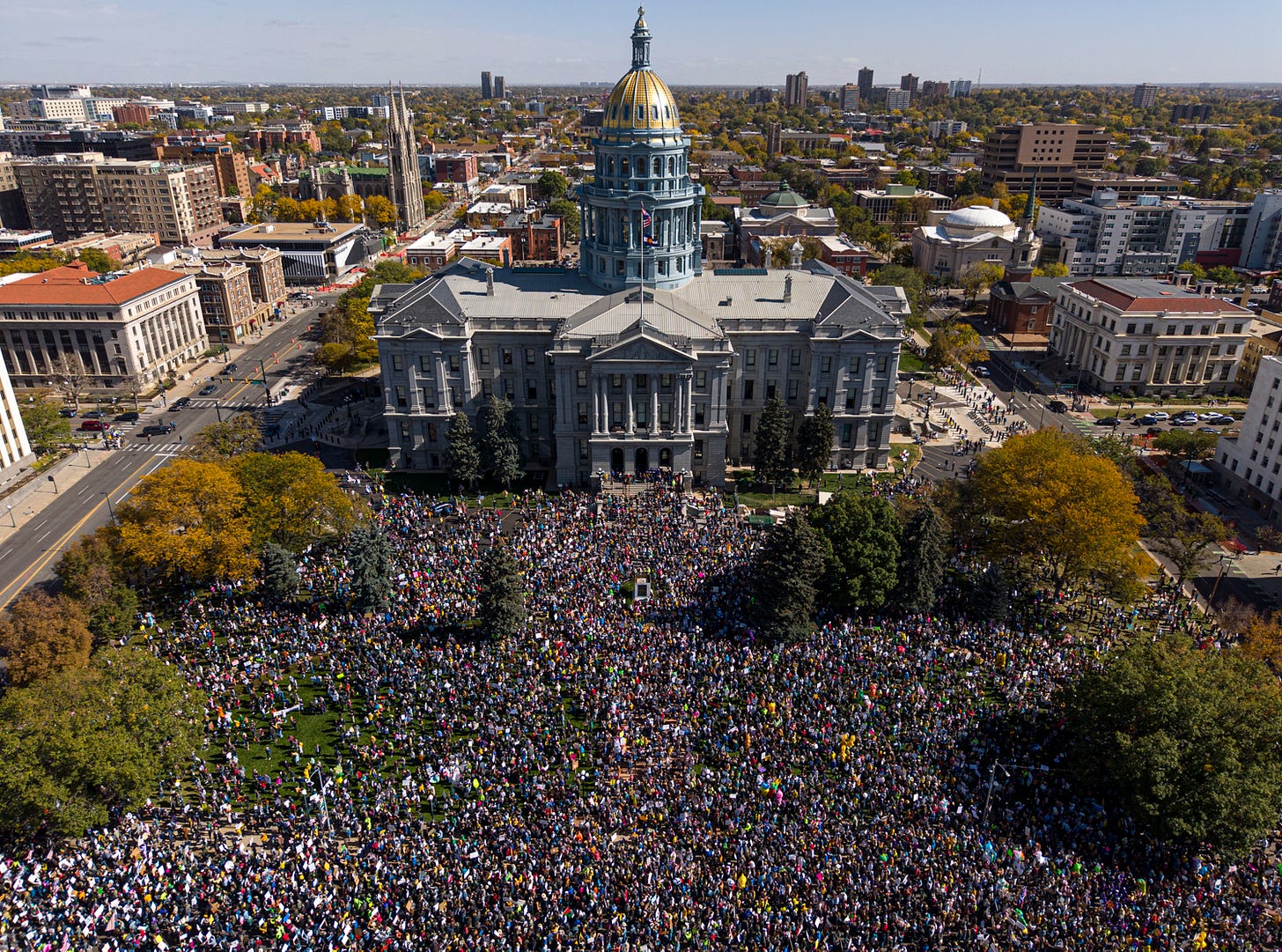Why Protests Don't Work
Unless you do this one thing
The first #NoKings protest posted record numbers of participants, drawing from every corner of the country. The second one has gone on to surpass that record turnout even more so, and indications are it has done exactly that.
This is all well and good, but here’s the problem: The civil rights movement and every other successful mass movement in the Unite…




